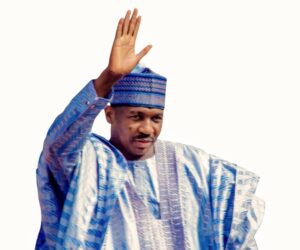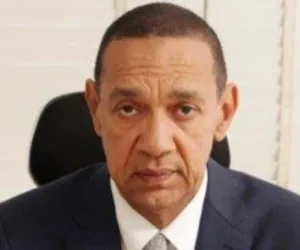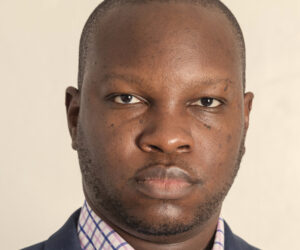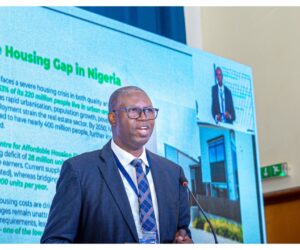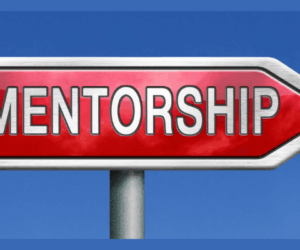By Vinmartin Obiora Ilo
Ebezina, depending on your dialect could be a word of consolation, a word of encouragement, hope or even reprimand. In some situations it can be a call to action.
The truth is that Ebezina (Stop Crying) derived from ibe akwa (crying) as much as it is used to express or address pain, loss, deprivation or even maltreatment, if it lingers or becomes a recurring decimal or situation, it could be seen as a sign of weakness, disadvantage, failure or defeat.
“Cry cry baby” as they say!!
Sometimes it smacks of inability of a person or group to identify challenges, confront it, overcome it and rise above it.
So today I am arguing that this crying needs to stop. Igbos have cried enough. It is time to take their fate in their hands.
Ndi Igbo have to retreat, re-strategize and re-examine how the Igbo nation is engaging with the rest of Nigeria, how we are confronting our many challenges, how we are collaborating among ourselves and how to prioritize our needs as a people.
We must stop bemoaning our fate and do something about it today not tomorrow.
There is no doubt that Ndi Igbo have over a long time faced existential threats in this country. For Ndi Igbo, the word marginalization has become synonymous with our complaints about the challenges we face in our nation today, some have even taken it further by suggesting that Igbos are not only marginalised but hated by other tribes in Nigeria.
I ask tonight, are Igbos marginalised? Many of our brothers and Sisters will answer in the affirmative but I want to differ somehow by saying that the greatest marginalization against the Igbos is not the marginalization by other tribes but the marginalization of Igbos by Igbos especially the elites and those that have been entrusted with leadership positions.
What is the situation?
In the last 26 years, the five states of the South East have collected Trillions of Naira in Federal Government allocations, add that to their internally generated revenue, also add extras from Ecological Fund, the occasional windfalls and the billions the individual state governments have borrowed or grants they have received from international donor agencies.
When you look at this humongous figures, tell me, does anywhere in the South East look like an environment where this kind of money has been spent, utilized or invested in?
Does our schools or hospitals in Abakaliki, Awka, Enugu, Owerri or Umuahia reflect the yearly recycled huge amounts the states budget for education or health ditto for other sectors.
In all of the South East today, show me one standard and functional hospital of repute that is run by government that provides affordable health care for Ndi Igbo
Between 1957 and 1966, Dr Michael Iheonukara Okpara, Premier of the Eastern Region caused what I like to call an infrastructural earthquake and kicked off a developmental revolution.
In all sectors including agriculture, education, industrialization, health, tourism, name it.
Few years into his premiership, 1964 to be precise, Eastern Nigeria became the fastest growing and industrialising economy in the world – ahead of Malaysia, Korea, Taiwan and Singapore.
In the first Republic when he was doing all these miracle, oil was not a factor and there were no monthly federal allocation to be shared.
More than 60 years after, every Igbo man is yearning for the reenactment of that golden era but as the say otu awu nezi. And I ask obu na nwa Mgbeke amaro akpu Isi, k’obu na aguba adiro nko?
At a point during the Jonathan administration Igbos held many strategic positions. Where did those positions take the Igbo man? At that time how did our brothers and sisters use their positions to the advantage of Ndi Igbo? Or did they use it just for personal aggrandizement.
The Enugu- Onitsha road and the Enugu Port Harcourt road are forever under construction and remains a nightmare that has further compounded the security situation in Igbo land yet we have had Governors, Ministers and legislators who represent us at the National Assembly and the Federal Executive Council. Many say that while their cheeks and pockets grew fatter, Ndi Igbo continue to suffer neglect
In politics how has the Igbos fared? The most disgraceful outing was in 2023 when most Nigerians believed it was the turn of Igbos to become President.
Many of our brothers connived with people of other tribes and truncated that opportunity. Not only did outsiders work against us but we worked against ourselves. There were so many enemies within or Saboteurs, a word that became popular during the civil war.
Thank God for Peter Obi and Labour Party which made it possible for Igbos to be counted, unfortunately with all his efforts, the Presidency still eluded the South East.
Still fresh in our minds is the 1999 betrayal of Dr Alex Ekwueme at the PDP convention in Jos and other opportunities where Igbos just flunked it.
Nigeria stands on three major tripods, Igbo, Hausa and Yoruba. Is It not worrisome that while the Hausa and Yoruba have taken more than one turn, Igbos are still docilely waiting. My question is waiting for who?
Power is TAKEN not GIVEN
The other problem with our politics is our political office recruitment system which has ignored merit and has tilted towards mediocrity.
In the old Igbo traditional collegiate leadership system, what gave you a seat at the table was hard work and success. So the best hunter, the best wrestler, the best farmer and so on, successful people with pedigree, track record and character were the ones the villages sent to the Elders Council…nwata kwocha aka, osolu ogalanya lie nni.
Today what qualifies a good number of our people to public office are mundane and pedestrian.
Those more likely to get to office are the guys who carry a bag for the governor, or the guy who cleans the Senators shoes, his barber, his PA or the chief thug of the Chairman of the party
At the end, these “servant leaders” get to office confused and lost and before they get their bearing the tenure is over and they return with billions of Naira to cause trouble in our communities.
Painfully if nothing is done, 2027 will be more disastrous.
One of the biggest issues in Nigeria today is state creation and what you hear today in Igbo land is a staccato of voices and cacophony of presentations. Discordant tunes that may deny the South East its right to getting at least two more states.
It beats the imagination of many not just me, why Igbos for something as important as this, are not speaking with one voice or even in a room having that conversation. Why did Governors of the South East or Ohanaeze Ndi Igbo, not convoke a meeting before now to make an effort towards consensus or come up with a well articulated strategy to demand for additional states
This is the same way we have handled the agitation for better treatment of Ndi Igbo by the government of Nigeria.
Instead of collaboration between the agitators and the Igbo intelligentsia and leaders, there was a complete disconnect.
There was not even an agreement on whether we should exit Nigeria or constructively engage the Nigerian State from within.
Igbos continue working at cross purposes and no meaningful progress has been made to confront the ill treatment of Igbos by the Nigerian State.
Igbo unity and oneness is another kettle of fish. In 2017 Peter Okpaleke from Anambra, now Cardinal was posted to Ahiara Mbaise Catholic Diocese as Bishop but was stoutly rejected by his fellow Igbo people who tagged his posting as discrimination. For eight long years the were up in arms until the Bishop resigned.
Is there something others are doing differently?
During the Obasanjo regime, the South South Region mounted a campaign for the
Presidency. At that time I worked for Raymond Dokpesi, founder of RayPower and AIT, who was one of the pillars of that agitation, so I had a somewhat front row seat.
One thing I noticed was that the riotous political atmosphere in the South South quietened and sworn enemies made up, political opponents started collaborating and planning.
While the militants made the creeks ungovernable, disrupting oil production, the political leaders, elites and elders were engaging the authorities.
I also discovered that a good number of their political office holders were providing the resources for the advocacy and efforts made towards their agitation and engagements.
There were a lot of planning openly and covertly.
Their media owners were empowered, funded and galvanized to drive the campaign. In summary, every hand was on deck and there was common purpose.
The South South didn’t win the Presidency in 2007 but Jonathan became Vice President and the rest is history.
Tinubu is today the Nigerian President. Because of him everyone in Nigeria knows the meaning of Emi lokan.
For the man also known as the Jagaban to have the audacity to say it was his turn, there was a lot of investment and planning. He was not given power, he took it, some even say he seized it.
While Tinubu was Governor and after he left office, he invested and continued to invest in human beings. All over Yoruba land he identified young leaders, mentored them and empowered them. He guided and protected their political growth. One became Vice President, some became governors, some became ministers and many ended in the National Assembly. His mentees were everywhere pulling strings including in other regions of the country.
For 16 years Mr Tinubu never sought office, rather he provided a ladder for others to climb while his contemporaries in Igbo land were busy betraying their kinsmen and contesting for any available office with people young enough to be their children.
For 16 years Tinubu organised the Yorubas, of course not all Yorubas agreed with him but a good number of them bought into his vision.
Tinubu also knew how to engage other tribes. As the 2015 election approached, he with other opposition leaders gave birth to APC where we learnt he had to give up the Vice Presidency just to ensure that the Coalition Project succeeded and Buhari became President.
Under the AC platform four years earlier, he had supported another Notherner, Nuhu Ribadu who is today, his National Security Adviser.
What Ndi Igbo should be doing
1. UNITY OF PURPOSE
Ndi Igbo must define their purpose, their objective and their mission. Ohanaeze Ndi Igbo should be repurposed and made relevant or a new organisation founded. As the apex socio political body in Igbo land Ohanaeze must reflect that status in character and in action. The leaders should stop sheepishly following State Governors and political office holders about. Ohanaeze should be the voice of reason and provide the proper direction for Ndi Igbo.
Our wealthy sons and daughters both at home and abroad must get involved with raising funds to support Igbo causes. If organisation like Ohanaeze are well funded, they will be more independent and will be able to appropriately represent Ndi Igbo interest rather than the interest of transient political office holders
Collaboration
Collaboration is key to development. Collaboration has become the currency of today. I believe that for the South East to make any intentional progress, the five states of the South East need to work together and we need the Governors to drive it.
Dubai is an Emirate in the United Arab Emirates. It is like a state or region in Nigeria. Dubai is not the richest emirate in UAE but there was an intentional effort by its leaders to develop Dubai and other Emirates including Abu Dhabi is doing catch up and Dubai has become the greatest destination in the world. Achieving it is not rocket science but needs dexterous planning and execution
Instead of turning one state in the South East into an unachievable and unsustainable Dubai in Africa, can we turn the South East into that eldorado ?
A true South East development body needs to be instituted, funded and made functional to drive such collaborations. Unlike what we had seen in the past, this body must have a life of it’s own and funding structured in such a way that it is not dependent on the whims of a particular
Governor or individual dashing money
The South East must partner in what I want to call Joint Regional projects in different sectors. For example a rail line or mono rail connecting the five South Eastern states will not only be viable but will be attractive to any investor as it will be easy for a return on investment.
A regional highway linking the five Eastern states is also achievable. Why can’t the South East have a regional first class university that will train the best brains in Igbo land or ultra modern hospital comparable to the best in the world?
Leveraging on our comparative advantage
A simple AI query I made gave me this “The Igbo people are a significant economic force in Nigeria, known for their entrepreneurial spirit, robust trade networks, and contributions to various sectors like agriculture, manufacturing, and small businesses. Their strong emphasis on apprenticeship and networking, along with their resilience, has fuelled their economic success despite challenges.”
Today Igbos dominate a lot of sectors in Nigeria. In retail, in aviation, in hospitality. Igbos have their fingers in many pies. We need to sit down to discuss how these areas of advantage can be strengthened and exploited for the good of the South East.
Igbos must invest more in manufacturing to create more value chains especially in the creation of jobs and employment
Think home philosophy
In the early 90s former Governor of Anambra State, Dr Chukwuemeka Ezeife championed the Think Home Philosophy which encouraged Igbo entrepreneurs to bring their business home, including those in Diaspora. There is no better time to do it but now
Every day our brothers and sisters doing business in other parts of Nigeria and the world complain of attacks from their hosts. Our governments must create a welcoming and conducive atmosphere to attract these entrepreneurs back home.
This new trend in the South East that the only way for state governments to grow their Internally Generated Revenue is by taxation has to stop. It is not only driving away investors but it is killing small businesses and killing our people.
Our governments in the South East should be more creative and innovative and come up with revenue generation mechanisms that will not impoverish our people or scare businesses away.
Political restrategization
Forgive me, Ndi Igbo need a Tinubu who will demand and seize the Presidency. We need rich Igbo men who will identify credible and trustworthy politicians and invest in them. We need our own Tinubu who will look the rest of Nigeria in the eye and tell them NKAA BU OGE NKE ANYI.
We need political leaders that will not seek power for only himself but will also be willing to cede power to a more qualified Igbo man if need be. A leader who will not be a perennial candidate for any available office .We need a selfless Igbo political leader who will mobilize and galvanize Ndi Igbo and like Martin Luther King be ready to die for Ndi Igbo to be liberated and be satisfied to view the mountain top.
Investment in a vibrant media
For over four decades of my work in journalism, I have always believed that for a people’s voice to be heard, they need to have a platform to amplify it. For a people’s message not to be distorted, they need to tell their story themselves.
That was why the great Zik of Africa so early in his career established chains of newspapers. His wife, Professor Uche Azikiwe told me years ago in an interview, that those newspapers were very important to Zik because he wanted to own the narrative.
Sometimes I wonder who could have given the Arab perspective in the Middle East if their was no Al Jazeera.
The truth is the Igbo voice will never be heard loud and clear until Ndi Igbo make a conscious effort to invest in the media and support media houses already established by Ndi Igbo
The media is such a powerful tool that we as a tribe cannot ignore it. Early in my broadcast journalism career, I realised this fact and I was instrumental to the establishment of a number of AIT and RayPower stations in the South East, courtesy of Chief Raymond Dokpesi. Unfortunately because of the harsh economic conditions and management challenges after I left in 2007, the stations did not survive.
But the hunger to ensure that as a people we have a strident voice brought me back in 2024. Now leading a team of professional journalists and seasoned broadcasters, we founded Signature TV to tell the South East story from the eyes and perspective of the South East, while telling other national and international stories.
We have been on this journey in the last 16 months and it has not been easy at all.
In our own case, for us to move our headquarters to Enugu from Abuja where we had operated for many years, we had to invest extra hundreds of millions to build a brand new TV station from scratch. Unfortunately with all these investments our governments are doing nothing to encourage or support us.
When they have events they will go to Lagos and Abuja to import other TV stations and radio stations and pay them millions while ignoring stations like ours.
Our businessmen toe the same line as they prefer the big stations, forgetting that people invested to make the big stations what they are today.
They also forget that besides telling the South East story that we also provide employment for hundreds of our kinsmen Our story is not different from other media entrepreneurs in the South East, as we groan under the heavy burden of a weak Naira, escalating logistics costs, drop in advert revenues and neglect by our governments and wealthy kinsmen.
This is not what happens in other climes where governments help to sustain the local media because they realise the importance to do so.
No one can tell your stories like you will tell it and in today’s Nigeria media landscape and the unending political competition, rooted on tribal allegiances, every interest group must ensure it has a vibrant media sympathetic to their agenda and aspirations.
My dear brothers crying will not change anything for Ndigbo, what will cause change are the positive actions we take today to change our situation
So once again I make this plea in the name of our forefathers, Ndi Igbo Ebezina.
Chukwu gozie Ndi igbo
•Vinmartin Obiora Ilo, President/CEO, Signature TV, delivered this speech at the Centre for Memories, Nkata Umuibe, Monthly Distinguished Speaker Series, 1st August, 2025.


